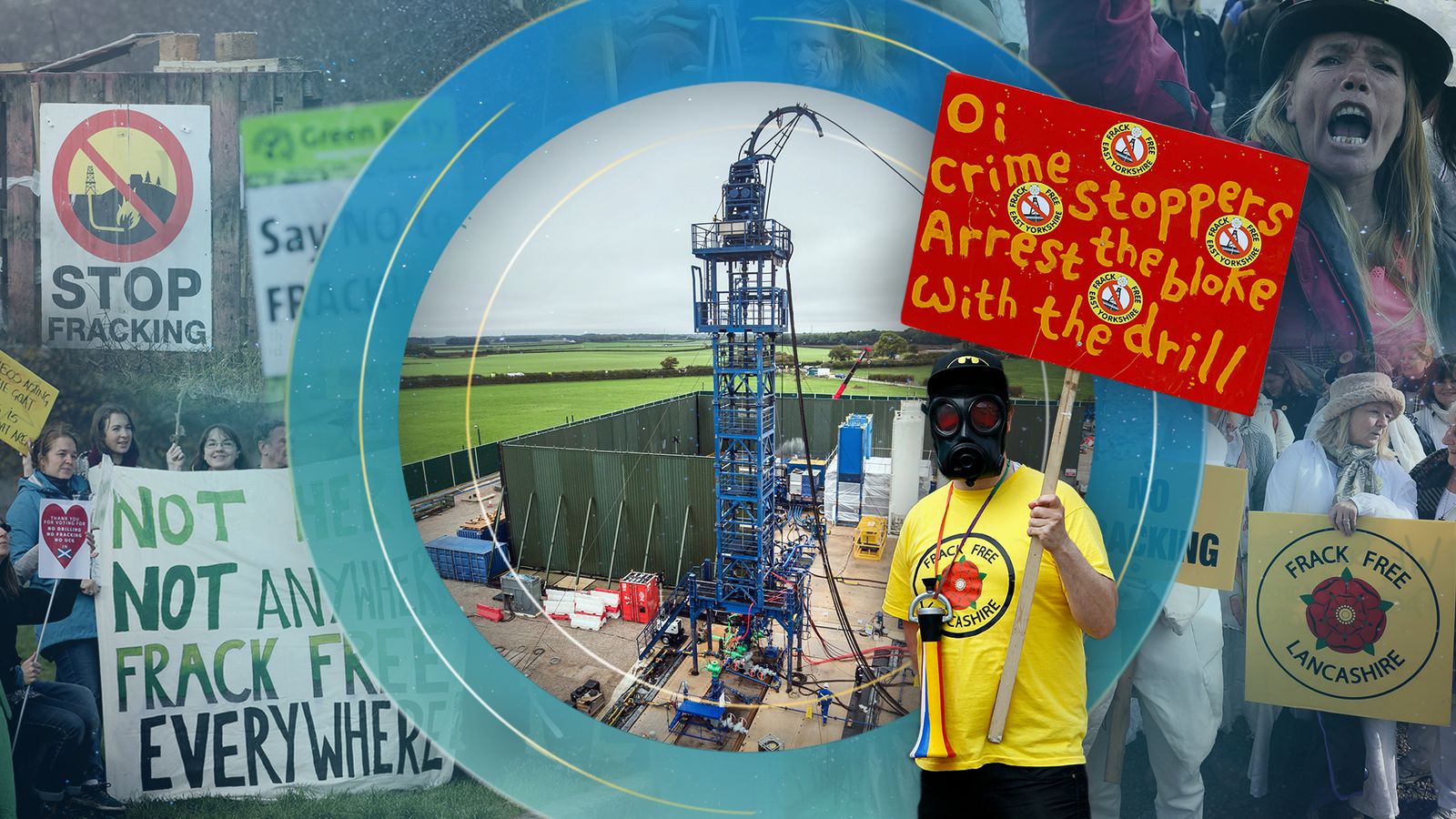Campaigners breathe a sigh of relief as Rishi Sunak reinstates fracking ban

In many parts of the country there will have been a sigh of relief at the news that new prime minister Rishi Sunak has decided to reinstate the national moratorium on fracking which his predecessor Liz Truss had previously reversed.
The controversial drilling process is deeply unpopular in those places where there are known reserves of shale gas underground.
In areas that have already experienced drilling, like Little Plumpton in Lancashire, campaigners were readying themselves for another big fight.
Residents pointed out that the science of fracking hasn’t changed, and that earthquakes were still possible.
But many were also opposed to the idea of building brand new fossil fuel infrastructure in the age of net zero.
Friends of the Earth spokesperson Danny Gross said: “This is a fantastic victory for common sense, the environment and local communities across the country who have stood up to the threat of fracking.
“The government must now focus on real solutions to the energy crisis including a street-by-street home insulation programme and developing the UK’s huge potential of onshore wind and solar energy production.”
It is true that there are many more questions than answers in relation to fracking. More than anything it is not clear how much shale gas there actually is, and how much of that gas is recoverable.
But there will be many who argue that whatever happens, the UK is going to need gas in the coming decades, and that the North Sea, which is a declining basin, won’t provide as much as we will consume.
Advertisement
Please use Chrome browser for a more accessible video player
1:09
Sunak ‘stands by manifesto’ pledge on fracking
Read more
Rishi Sunak reinstates fracking ban in another reversal of Truss policy
Labour calls on Tories to seize opportunity to ban fracking ‘once and for all’
UK should ‘have another go’ at fracking, says leading geologist
Without an opportunity to explore for domestic shale gas, fracking’s supporters claim, we are further exposing ourselves to the volatile international fossil fuel markets.
The free market think-tank, Institute of Economic Affairs, said: “Restoring the fracking moratorium would be an error.
“To rely on imported gas when we have 50-100 years supply under our feet is not a stance rooted in science or economics, but political weakness in the face of militant protest groups and anti-development campaigns.
“This decision will not help the planet; the UK will become more dependent on gas imports, with higher emissions than local production.
“It will not help the growth plan; we will be borrowing to pay Qatari and US taxes rather than building an industry.”
Watch the Daily Climate Show at 3.30pm Monday to Friday, and The Climate Show with Tom Heap on Saturday and Sunday at 3.30pm and 7.30pm.
All on Sky News, on the Sky News website and app, on YouTube and Twitter.
The show investigates how global warming is changing our landscape and highlights solutions to the crisis.